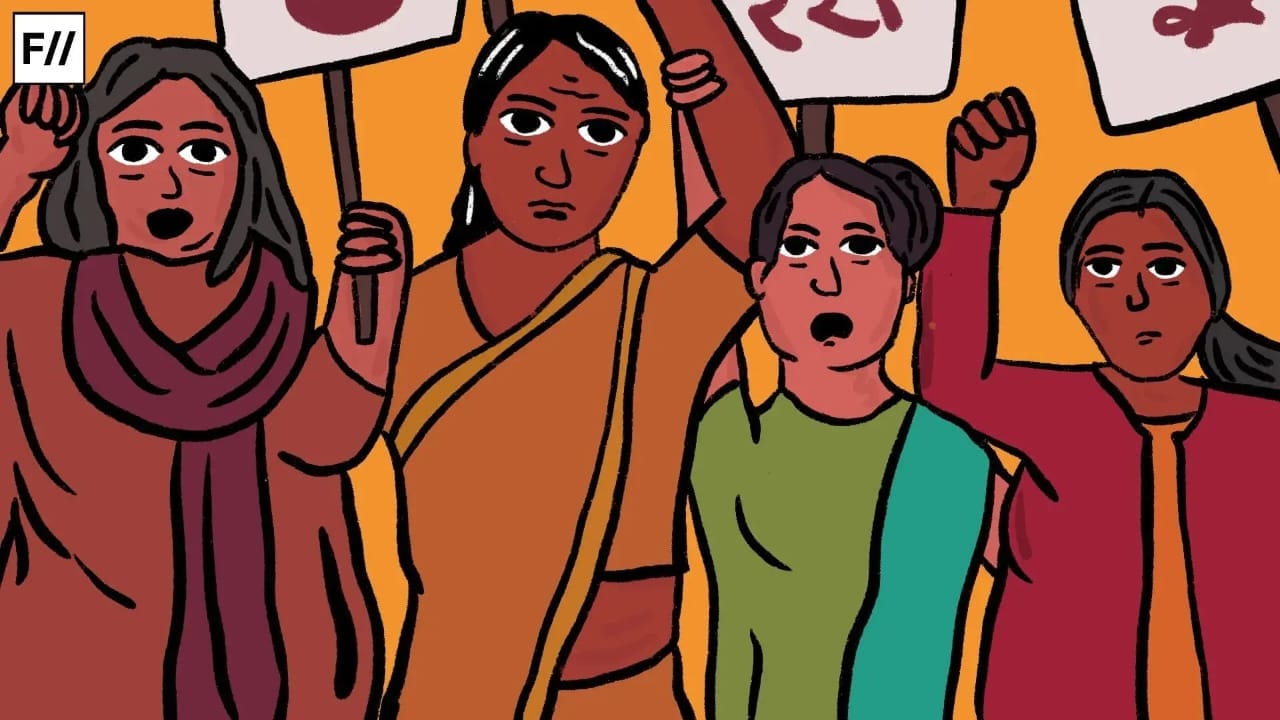You get a paper cut, you experience pain; tooth breaks, you experience pain; bone fractures, you experience pain. Pain is the best alarm system in the world. Colin Klein, a philosopher at the Australian National University, compares pain to a watchful terrier – it sometimes warns you about trespassers and sometimes gets mad over nothing at all. On certain occasions, it might also let the burglars in if they offered it snacks. The factor that makes pain an effective protection mechanism also makes it subjective. For example, a pot of boiling water may feel hotter to a toddler as compared to a grown-up. This happens because of the difference in their pain-bearing threshold. This psychological dimension of pain becomes utterly complex when studied in connection with gender and results in gestalt conundrums.
The History Of Hysteria
The tradition of blaming women’s emotion for their pain has percolated down the annals of history as a persistent issue. Research has proven that the administration of healthcare facilities is gender-biased. This happens because women with pain are often perceived as ‘hysterical’ or ‘too emotional’. On several occasions, the physical chronic pains are brushed off as painless psychological conditions. The taboo around psychological illnesses being “all in the head” results in a double-blind stigma. A precedent to this woeful disparity in diagnoses is Multiple Sclerosis. This disease affects women disproportionately. However, it was originally considered to be a male-dominated disease because women were often misdiagnosed with hysteria.
Multiple Sclerosis affects women disproportionately. However, it was originally considered to be a male-dominated disease because women were often misdiagnosed with hysteria.
This bias is based upon a culture of linguistic harassment. While literary artists have proudly dubbed men with pain as ‘melancholic’, the epithet of hysteria has been reserved for women. In Greek, the word hystera from which hysteria has been etymologically derived means ‘womb’. This conforms with Aristotle’s flower-pot theory of women being lesser men. Hence, hysteria adds to the list of concerns that need immediate redressal.
Also read: The History of ‘Hysteria’ And How Science Can Be Sexist

The Credibility Deficit
From courts to homes, the testimony of women is always under question. Within the Indian literature, Vatsyayana’s Kamasutra is an example that upholds this idea. It states that a woman engaged in the sexual act is expected to plead. But, her protests aren’t genuine expressions of pain, rather a mere fulfilment of her role. This credibility deficit is traced to the lacunae within Indian society when it comes to the question of ‘consent’. Unfortunately, it also strengthens idea behind the phrase – ‘ladki ki naa mein haan chhupi hoti hai’ (Even when a girl says no, it means yes).
This credibility deficit is traced to the lacunae within Indian society when it comes to the question of ‘consent’. Unfortunately, it also strengthens idea behind the phrase – ‘ladki ki naa mein haan chhupi hoti hai’ (Even when a girl says no, it means yes).
Credibility Deficit is a term coined by philosopher Miranda Fricker. She states that women are often treated as less reliable sources of information. This happens precisely because of the patriarchal stereotypes that cast women as irrational and emotional. Consequently, the understanding of crimes related to women, such as workplace harassment, marital rape, etc. is profoundly skewed, since the people who are most likely to be affected are least likely to be believed.
Also read: #MeToo: Why Is It Hard For Men To Believe Women And Their Stories?
Believe Women Vs Believe All Women
In the wake of the MeToo movement, arose a slogan on Twitter – #BelieveWomen. Many took it to the extreme position of ‘Believe All Women’. The contentious addition of the word ‘all’ devalued what the slogan represented, given that not ‘all’ #MeToo stories turned out to be true. The modified slogan of Believe All Women that rose as a redressal response to survivors, urging everyone to believe the ‘pain’ women have suffered, with the intention to ignite a collective consciousness to oppose the notion of ‘hysterical women’, was turned into fight against men based on revenge. Movies like Section 375 highlight this aspect of our society.
Also read: The Spectre Of False Rape Cases And How The Media Perpetuates It
While patriarchy can be, and more importantly – should be, blamed for propounding and establishing the aura of credibility deficit around women’s pain, women themselves have been conditioned to further it through canards. Though lesser in number, women do make false accusations for ulterior motives and gather support behind the veil of pseudo-feminism consequently, blanketing the credibility of a genuine case. This makes me wonder whether we should force the slogan into early retirement or not, because defending this boilerplate has become an extremely tiresome task. It can very well be a life or death question for the women’s movement whose foundations are intersectional, the aim of which is to free every woman from the universalisation of ‘all women’.
Featured Image Source: Unsplash
About the author(s)
Sugandhaa's major areas of interest are aesthetics and feminism. She loves engaging with historical fiction - when she isn't reading it, she is daydreaming about it!






